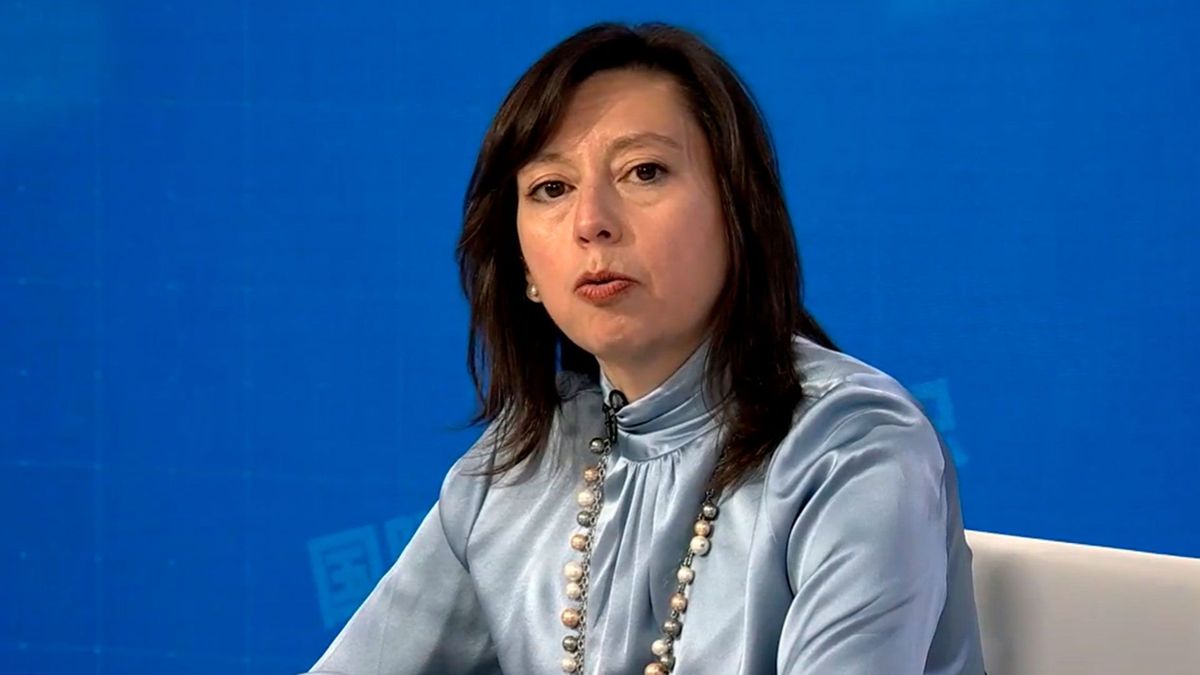The International Monetary Fund reiterated that it is holding talks “constructive” with the Argentine authorities and assured that the impact of the “historic drought” will be taken into account in the reformulation of the current program. This was stated by the agency spokesperson, Julie Kozack, in the framework of a press conference offered this Thursday morning in Washington.
Kozack began his presentation on the country by recalling that Argentina completed the fourth review of the extended facilities program, which made possible an immediate disbursement of 5.4 billion dollars. In this regard, he highlighted that “We have been working closely with the Argentine authorities in the context of the program, to address a very challenging and complex situation.”
As for the current status of talksthe spokesperson stated that “We have been working closely, as I already said, with the authorities in the context of the challenging economic situation, which of course has been exacerbated by the historic drought that Argentina is facing.”
held that “The focus of the discussions that are taking place now, for the fifth review, has been on strengthening the authorities’ program taking into account the impact of the drought.”
Kozack concluded by noting that “There are discussions that are in progress, that are constructive, they are virtual discussions and we will communicate about Argentina and the result of these discussions in the course of time”.
Previously, the spokesperson had been consulted by the Argentine press, including Ambit, on whether the advance of funds to the country is contemplated, on the opinion of the body regarding the intervention of the Central Bank in the exchange market or on the timing of the negotiations, among other aspects. Kozack did not answer any of these questions..
While the conversations between Argentine officials and the Fund’s staff are permanent in a virtual way, in official media it is commented that the intention is to reach a technical agreement by the first or second half of June.
In this way, the Board of Directors of the organization, it is expected, could approve the reformulation of the program in the second half of June.
In another order, the spokeswoman anticipated the next trip to the region by Gita Gopinath, deputy director of the IMF, who will visit both Chile and Brazil this month but will not visit Argentina.
The rules change
In statements made last Tuesday, within the framework of a meeting organized by the United States Chamber of Commerce in Argentina, the minister Sergio Massa recalled that the IMF itself recognized that the greatest drought in history constituted a “game changer” (a change in the rules of the game) that forces us to rethink the entire program agreed with the country.
The head of the Palacio de Hacienda referred to the magnitude of the losses derived from the climatic phenomenon, noting that, out of an expected production and exports of USD 42,000 million, the drought will reduce this figure to between USD 24,000 and 27,000 million with the consequent impact that this has on the prospect of reserve accumulation.
The current situation regarding reserves is criticism, according to private studies. For example, Econometrica has just published a report in which it maintains that the net foreign assets of the Central Bank (using the Fund’s methodology) are negative by USD 1,000 millionwith an accumulated loss for the year of around USD 8,700 million.
It is in this context that the Argentine authorities and the representatives of the IMF they are rethinking the short, medium and long-term objectives of the program. It should be clarified that this is not a new program, which would have required congressional approval and the search for special majorities, but rather a redefinition within the agreement already reached.
In this sense, Massa maintained that the front load (advances) is one of the tools that the Fund has by statute. According to reports, the aspiration of the economic team would be to advance disbursements for more than USD 10,000 million to strengthen the BCRA reserves.
However, news from Washington indicates that within the organization’s Board of Directors there is resistance to advancing this sum to Argentina.
Discussions with the Fund take place after having raised some differences between the agency and the Argentine authorities. Some time ago the IMF described the pension moratorium as “unforeseen”, a measure that implies an increase in public spending.
On the other hand, Minister Massa has just pointed out that “there is a question that is central to us, which is the intervention capacity of the Central Bankwhich cannot be waived, basically because political and electoral years in Argentina always generate this idea of, save myself, I dollarize my portfolio, they generate this feeling of uncertainty, and obviously that the Central Bank has the capacity to intervene and that the State has some capacity of intervention is to have, not tools to distort markets, but tools to generate certaintypeace of mind, at a time when political uncertainty can generate some difficult situation”.
It should be remembered that historically the Fund was opposed to official intervention in the foreign exchange market to try to contain the price of the dollar. In the BCRA it is recalled that an intervention of this nature cost him the position of president of the entity to louis caputo (resigned on September 25, 2018). Although the official communication of the resignation made reference to “personal reasons”, the officials at that time assured that Caputo’s departure was in response to an express request from the IMF for his decision to go out and sell dollars from the reserves to contain the quotes.
Source: Ambito




